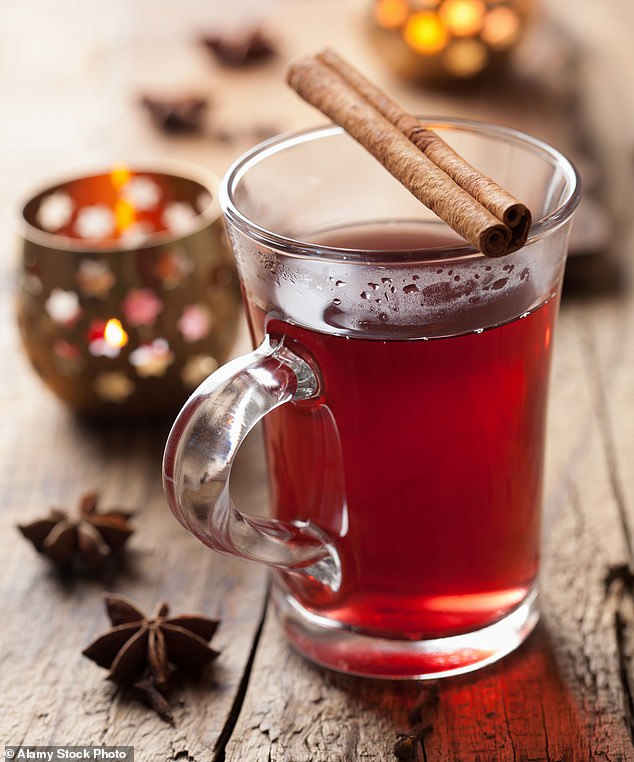Baby it’s cold outside – but the good news is that mulled wine really does warm you up.
Anyone hoping to indulge in the festive tipple this Christmas will be cheered by findings from researchers which show that the traditional alcoholic spiced drink definitely raises body temperature.
Those recruited for their study (‘sober healthcare professionals,’ the researchers stress) were required to drink mulled wine containing 12g of alcohol on one day, and wine without alcohol on another.
Their facial temperatures were measured before they started drinking and every 10 minutes for an hour after they’d finished, using thermography: an infrared camera that detects heat patterns in body tissue.
While it’s known that alcohol can widen blood vessels to increase blood flow, it has not always been clear whether it actually increases body warmth or merely gives the sensation of warmth.
However, the study proved that the increased warmth is real. Not only did the alcoholic version make drinkers feel warmer, but the researchers also found that the average facial temperature of tipplers was 33.6C, compared with 32.9C on the days when no alcohol was consumed.
In other words, what’s sometimes referred to as ‘a beer jacket’ – the increased inability to feel the cold after drinking – turns out to be a real, scientific phenomenon

Researchers have found that mulled wine increases bodily warmth (file photo)

A steaming mug of mulled wine at a Christmas market in Berlin
The study, published in the Christmas edition of the Danish Medical Journal, was carried out by researchers from Nordsjællands hospital in Frederikssund, Denmark on 15 people.
‘Mulled wine with alcohol increases facial temperature and subjective feelings of warmth,’ it concluded firmly.
Mulled wine is a staple at Christmas markets and involves warming red wine with sugar and spices
such as cloves, cinnamon, nutmeg and citrus fruit (although the Danish scientists also added rum). Often assumed to have its roots in Germany or Victorian England, it in fact dates back to the Roman Empire in the first century.
Share or comment on this article:
Baby it’s cold outside…have some mulled wine: Festive tipple really does warm us up at Christmas, research finds

